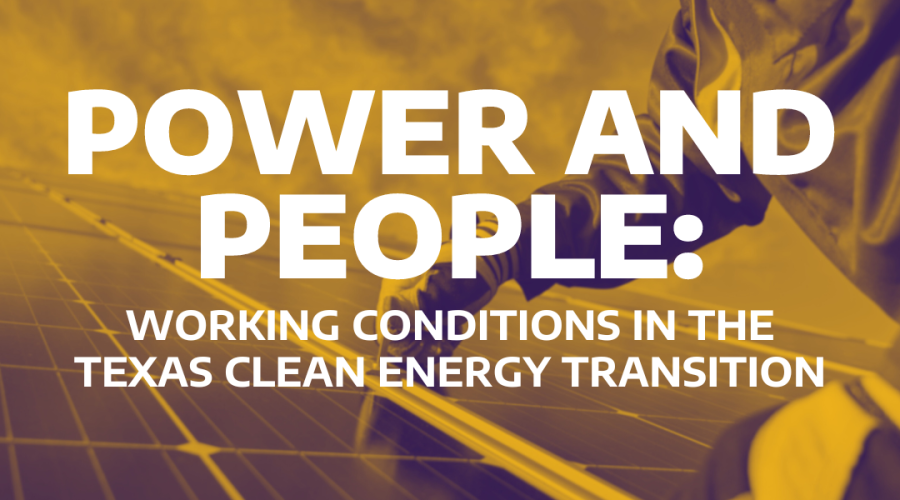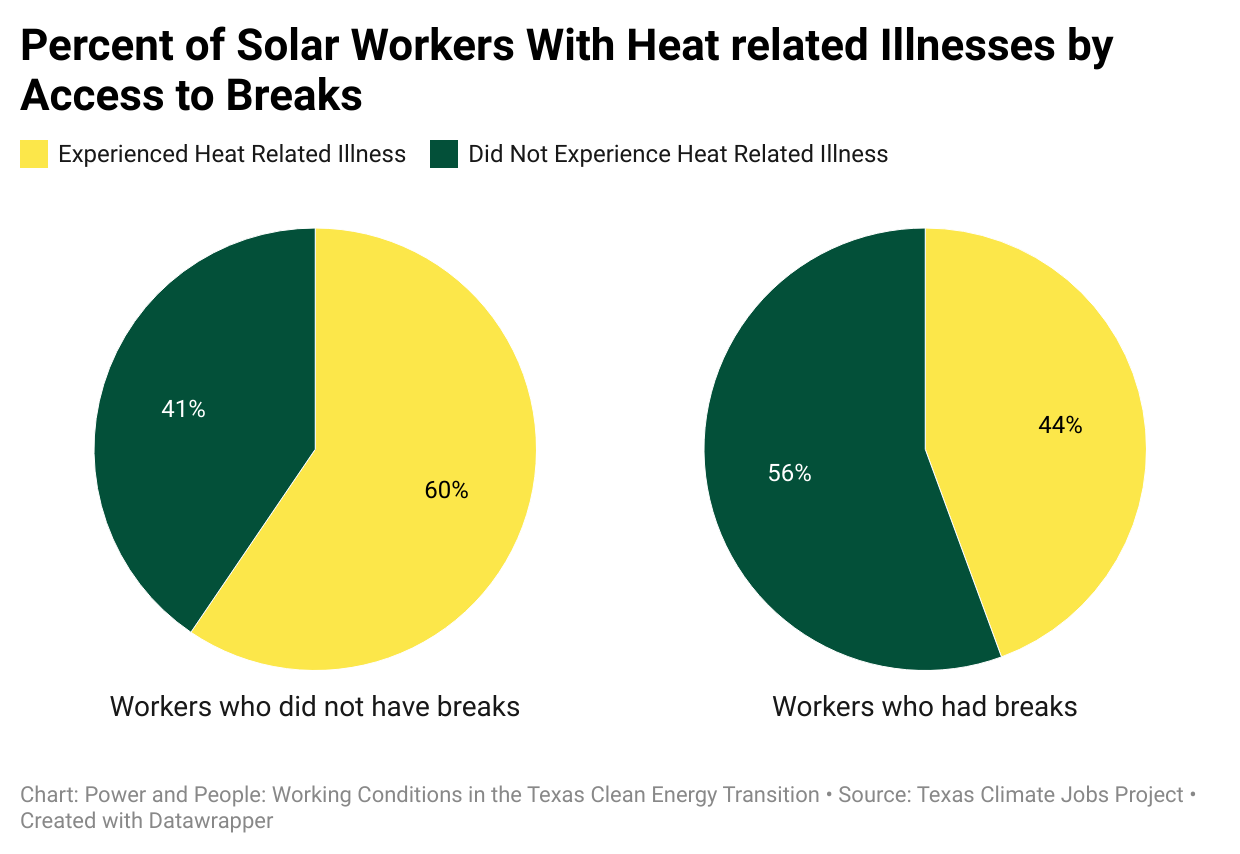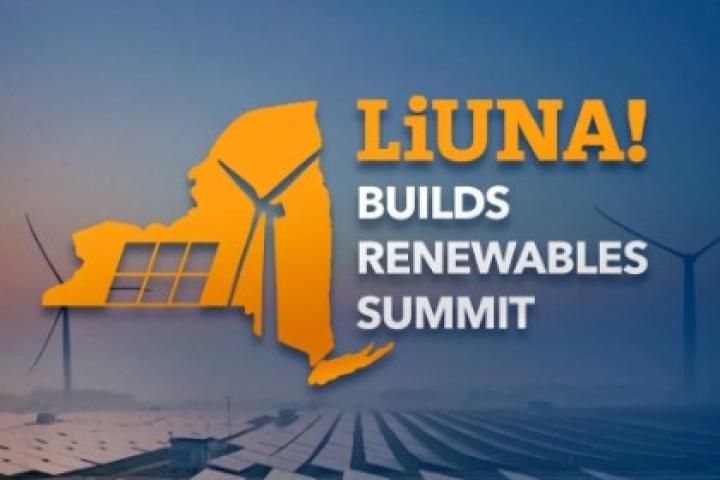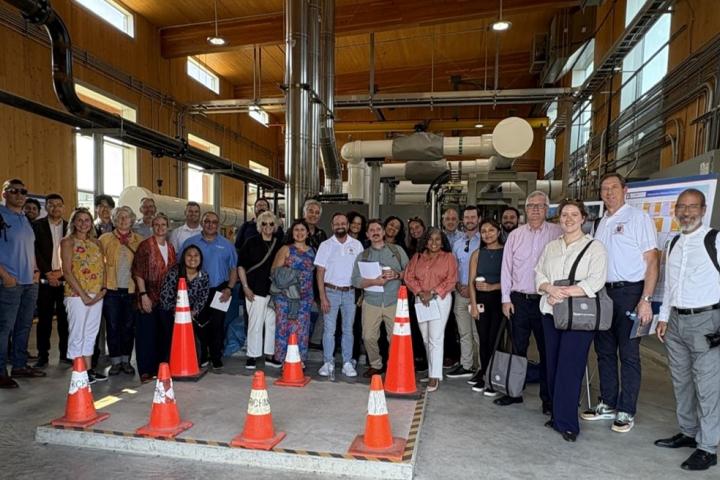
Power and People: Working Conditions in the Texas Clean Energy Transition
Gives a First In-Depth Look Examining The Texas Clean Energy Industry and Highlighting the Importance of Labor Standards in Ensuring High-Quality Jobs
Texas is leading the nation in clean energy deployment but while the state is rapidly expanding its solar and wind power, the workers building this clean energy future often face dangerous conditions, unfair wages, and a lack of benefits.
The groundbreaking study assessed the wages, benefits, and working conditions of over 1,200 workers in Texas's clean energy sectors (solar, wind, and clean energy manufacturing). Data collection methods included phone banking and digital outreach using public and commercial datasets. Researchers also conducted extensive, in-person field outreach with workers from active clean energy job sites, including in-depth interviews of solar workers on the ground.
“Across Texas solar and wind sites and clean energy manufacturing facilities, it is clear we need to do better by workers and by the planet. Workers building out the clean energy future deserve equitable careers that are high quality, safe, and family-sustaining.”
Avalon Hoek Spaans, Assistant Director of Research, Climate Jobs Institute
One in four workers surveyed across these sectors experienced a work-related injury, and nearly one in two workers suffered heat-related illnesses.
This research additionally revealed substantial wage and benefit disparities, where workers of color, women, and workers that chose to fill out surveys in Spanish consistently earned less than their counterparts. Additionally, 70% of respondents reported a lack of access to workers’ compensation insurance, 71% reported a lack of access to retirement benefits, and nearly half (47%) lacked health insurance.

“When clean energy workers in Texas have a high prevalence of heat-related illness or common experience of workplace injury on their jobs sites without standard access to basic benefits like health insurance or workers' compensation, that’s a problem. These workers are building solutions that will protect our communities and future generations from climate risk; we must do more to protect them.”
Avalon Hoek Spaans, Assistant Director of Research, Climate Jobs Institute
Although the Inflation Reduction Act implemented federal rules requiring the use of registered apprentices for certain tax credits, this study also found that under one percent of the solar and wind survey respondents identified as apprentices. This indicates a need for more transparency from companies that benefit from federal investments. Ensuring that these federal apprenticeship rules are being followed may help to build a workforce with fair wages and long term career pathways.
RECOMMENDATIONS:
- Ensuring High Labor Standards: Workers must have a say in Texas's clean energy transition. This includes enforcing labor agreements that protect workers' rights and helping oil and gas workers transition to new, high-quality clean energy jobs.
- Tax Credit Transparency: Increased transparency around companies seeking tax credits is needed. Requiring them to provide advance notice, including on-site postings, about projects receiving tax credits and the associated labor standards may increase this transparency and in turn help working conditions.
- Heat Safety: Given the prevalence of heat related illnesses among workers in this survey, there must be faster implementation of federal heat safety standards to protect outdoor workers.

- Workers' Compensation: Every other state requires employers to participate in a workers’ compensation program—except for Texas. This means that if workers are injured on the job, they are responsible for covering all their medical costs, not their employers. Requiring employers to provide workers' compensation insurance increases protection for workers.
- Local Decision-Making: Repealing HB2127, referred to as the “Death Star” bill, is important to remediate limits on local workplace protections.
“The analysis highlights clear, measurable racial inequality among the survey respondents. Through interviews, the team uncovered a few potential mechanisms which might contribute to disparities and should be studied further. Respondents described being discouraged from speaking about wages with other workers, and preferential treatment based on supervisors’ personal connections.”
Jillian Morley, Research Support Specialist, Climate Jobs Institute



